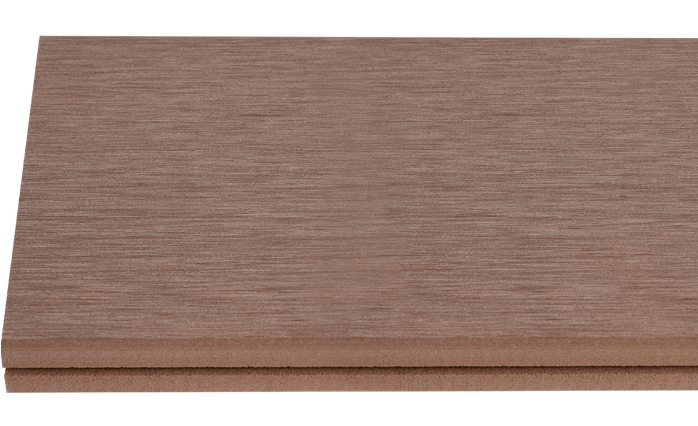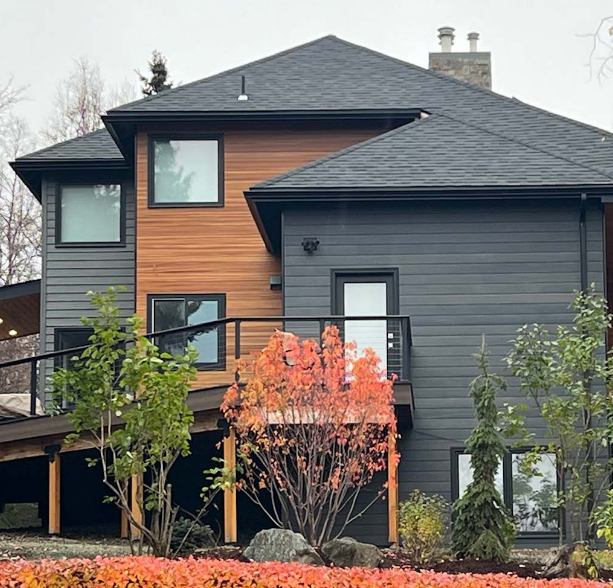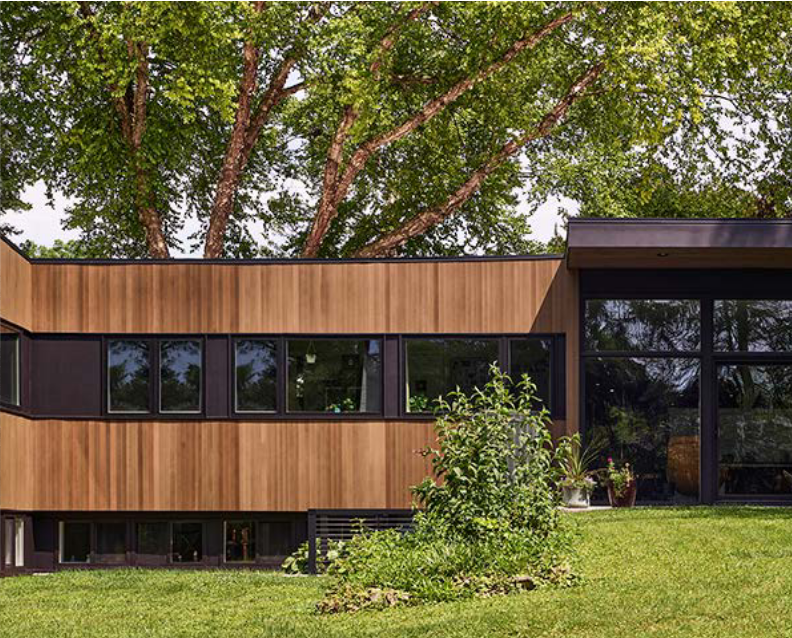I recently got this email from Connor McKenzie who works with Modern Mill: “I enjoyed your recent article on using rice husks for compressed earth blocks and thought you’d be interested in another innovation: a Mississippi company that’s turning rice hulls into tree-free siding, trim, decking, millwork and more. Modern Mill has developed a building material made from 50% upcycled rice hulls by volume blended with a clean, rigid PVC resin. ACRE combines the warmth and workability of wood with the durability of composites. ACRE is designed to help reduce reliance on trees and preserve old-growth forests, giving builders and homeowners a way to make the switch without compromise.”
 I asked him to send me some samples, which he did. So then I wrote him: ‘Your samples arrived and I checked them out. They do appear to be real wood, kind of similar to how vinyl flooring does. I really like the way they recycle rice hulls. But I do have some concerns about the use of PVC as a binder. My research suggests that PVC is a rather toxic substance, unfortunately, making your products of questionable value.”
I asked him to send me some samples, which he did. So then I wrote him: ‘Your samples arrived and I checked them out. They do appear to be real wood, kind of similar to how vinyl flooring does. I really like the way they recycle rice hulls. But I do have some concerns about the use of PVC as a binder. My research suggests that PVC is a rather toxic substance, unfortunately, making your products of questionable value.”
 So then Connor responded: “Regarding the PVC in ACRE: We believe sustainability is ultimately about meeting the needs of today without compromising the ability of future generations to meet their own and that’s how we approach building with ACRE. The rigid PVC we use in ACRE is free of VOCs and plasticizers (which are common in flexible PVC), and it’s made using cleaner natural gas rather than coal or oil. Unlike most polymers made entirely from fossil fuels, PVC is derived in part from salt, making it less reliant on nonrenewable resources. ACRE helps reduce dependence on wood, allowing us to preserve forests and avoid the environmental cost of deforestation. It also contains no phenol, formaldehyde, adhesives, or harmful “forever chemicals,” making it a healthier choice for both people and the planet.
So then Connor responded: “Regarding the PVC in ACRE: We believe sustainability is ultimately about meeting the needs of today without compromising the ability of future generations to meet their own and that’s how we approach building with ACRE. The rigid PVC we use in ACRE is free of VOCs and plasticizers (which are common in flexible PVC), and it’s made using cleaner natural gas rather than coal or oil. Unlike most polymers made entirely from fossil fuels, PVC is derived in part from salt, making it less reliant on nonrenewable resources. ACRE helps reduce dependence on wood, allowing us to preserve forests and avoid the environmental cost of deforestation. It also contains no phenol, formaldehyde, adhesives, or harmful “forever chemicals,” making it a healthier choice for both people and the planet.
 As for end-of-life, ACRE is fully recyclable and unlike short-lived products like plastic packaging, PVC building materials are designed for decades of use. Much of the PVC in circulation today, from piping to siding to flooring, was produced over the past 50 years and remains in service. Due to this long-life cycle, large-scale recycling streams are still being developed across the world.”
As for end-of-life, ACRE is fully recyclable and unlike short-lived products like plastic packaging, PVC building materials are designed for decades of use. Much of the PVC in circulation today, from piping to siding to flooring, was produced over the past 50 years and remains in service. Due to this long-life cycle, large-scale recycling streams are still being developed across the world.”
In scanning their website, I did notice this warning: “Do not burn ACRE products or scraps. ACRE products are not safe to be discarded by burning, used as a firewood, kindling or as any other source of fuel to create and/or maintain a fire or heat source.” PVC is highly toxic when burned, which brings up another concern, given the increasing danger of home fires with global warming.

Fascinating read! Turning rice hulls into wood-like materials showcases a clever, sustainable alternative to traditional timber. Leveraging agricultural waste for building products helps reduce deforestation and adds value to byproducts. I appreciate the insights into processing techniques, performance characteristics, and real-world applications. Definitely a thought-provoking approach for green construction and circular economy advocates.